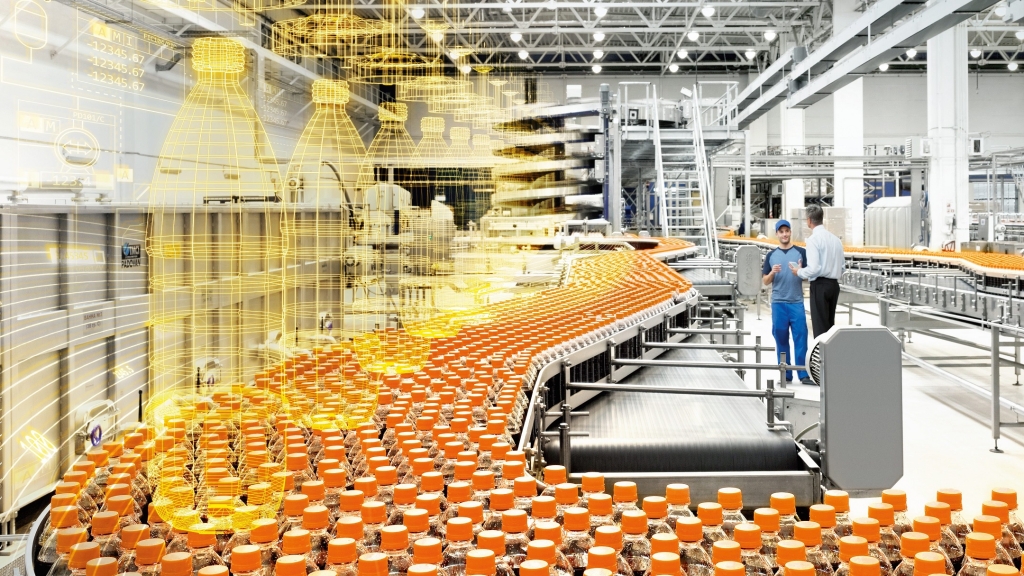
Siemens showcases digital tech to boost Middle East’s food and beverage manufacturing
· Digital enterprise boosts rapid innovation for customized manufacturing
· Industrial sector can increase productivity, flexibility, efficiency and quality
· Digitalized manufacturing drives economic diversification in the Middle East
For the first time in the Middle East, Siemens will show how digital technologies are essential to drive the region’s expanding food and beverage manufacturing sector, disrupt existing processes and create new business models. During Gulfood Manufacturing in Dubai (6-8 November) Siemens will demonstrate how industrial enterprises of all sizes can use the digital transformation to achieve consistently higher levels of product quality, plant availability, resource efficiency and flexibility, in order to meet individual customer requirements.
“As industrialization gathers pace in the Middle East, manufacturers must embrace the digital transformation to accommodate rapidly changing consumer expectations,” said Athar Siddiqui, Executive Vice President of the Digital Factory division, Siemens Middle East. “There is growing demand for customized, individualized products in the food and beverage industry, and digitalization allows manufacturers to meet this challenge competitively with higher levels of availability, quality, efficiency and flexibility.”
Rapidly changing consumer expectations are placing companies under increasing pressure to turn around ever more customized products within the shortest possible time, and all to an optimum, consistent standard of quality. The key to successfully addressing this challenge is digitalization. It allows companies to simulate, test and optimize products, production processes and plants in a totally virtual environment on the basis of a ‘digital twin’.
The digital twin of a product, machine or whole plant enables manufacturers to respond to rapidly changing market demands at every stage, utilizing data and end-to-end automation from the product idea to the manufacturing, filling, packaging and labeling. When creating a recipe for a new product, for instance, data relating to the ingredients is transferred directly to the label, taking into account legal rules and regulations. It also makes it possible to test out planned changes to the plant and what effect they will have on production capacity.
This capability permits the food industry – as applies in general to all sectors of the manufacturing and process industries – to significantly increase its innovation speed and boost its productivity, and also to take the lead in defining whole new business models. For example, the scope offered by digitalization enables consumers to design products and packaging in line with their own personal tastes, allowing customized, individual products to be mass produced.
The Middle East’s manufacturing sector is expanding rapidly as countries in the region seek to build increasingly diverse economies. The UAE, for example, is seeking to increase the contribution of the manufacturing sector to overall GDP from 11 percent to 25 percent by 2025.
Follow us on Twitter at: @siemens_me
Siemens AG (Berlin and Munich) is a global technology powerhouse that has stood for engineering excellence, innovation, quality, reliability and internationality for 170 years. The company is active around the globe, focusing on the areas of electrification, automation and digitalization. One of the world's largest producers of energy-efficient, resource-saving technologies, Siemens is a leading supplier of efficient power generation and power transmission solutions and a pioneer in infrastructure solutions as well as automation, drive and software solutions for industry. The company is also a leading provider of medical imaging equipment – such as computed tomography and magnetic resonance imaging systems – and a leader in laboratory diagnostics as well as clinical IT. In fiscal 2017, which ended on September 30, 2017, Siemens generated revenue of €83.0 billion and net income of €6.2 billion. At the end of September 2017, the company had around 372,000 employees worldwide. Further information is available on the Internet at www.siemens.com



























